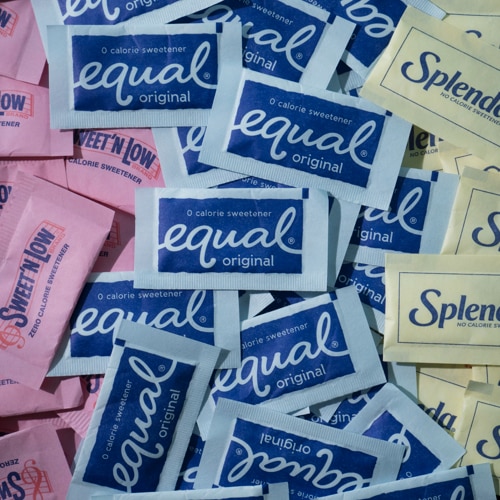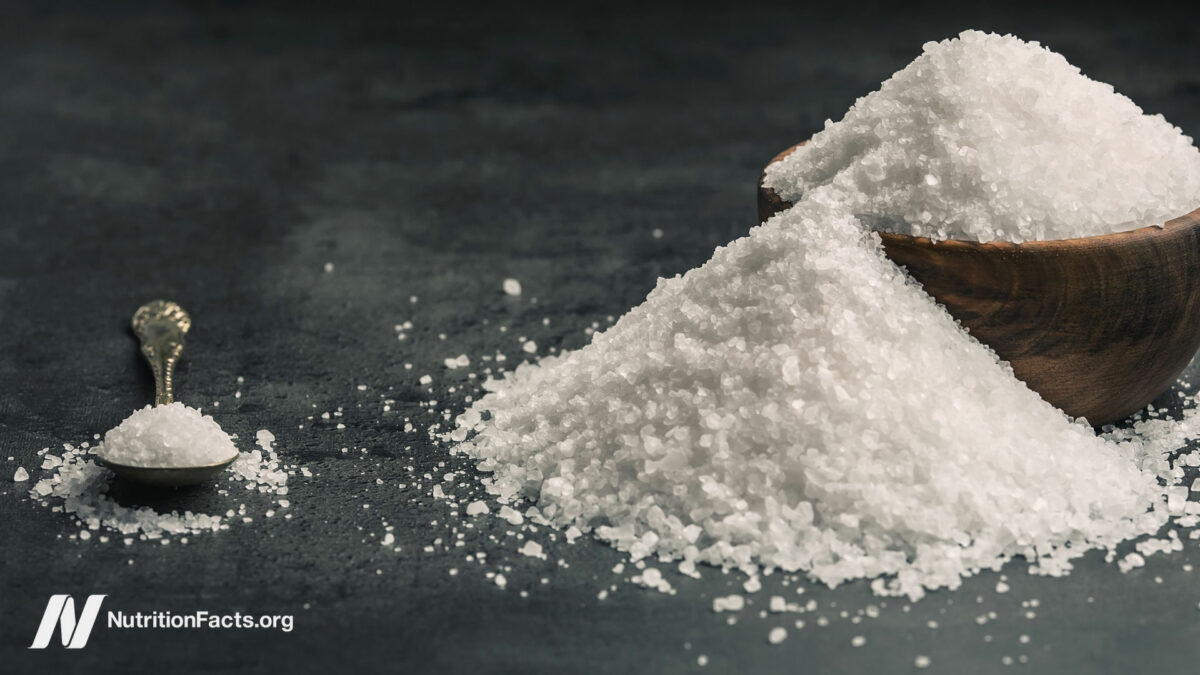
Sweeteners
Artificial sweeteners may be found in everything from breath mints and chewing gums to jams, jellies, and juices, and even nutritional bars and yogurts. Is one healthier than another?
The National Institutes of Health–AARP study, which followed hundreds of thousands of Americans for a decade, found that frequently drinking sweetened beverages may increase depression risk among older adults. Indeed, adding sugar to coffee may negate many of coffee’s positive effects on mood, and adding the artificial sweetener aspartame (found in Equal and NutraSweet) or saccharine (in Sweet ’n Low) was associated with an increased risk of depression.
The controversy surrounding aspartame’s neurological effects began in the 1980s when subjects with a history of depression seemed to experience such severe reactions to the sweetener that a study was halted prematurely. More recently, aspartame’s neurobehavioral effects were investigated in a population free from mental illness. Healthy individuals were split into two groups with half given a higher dose of aspartame (the equivalent of about three liters of Diet Coke’s worth) and the other half a lower dose (a single liter of Diet Coke’s worth). Then the groups switched. After only eight days on the higher-aspartame dose, participants exhibited more depression and irritability, and performed worse on certain brain function tests.
Blackstrap molasses and date sugar may be the only two health-promoting caloric sweeteners. Other such sweeteners, such as honey and maple, agave, and brown rice syrups don’t appear to offer much nutritionally.
And stevia? The World Health Organization considers up to 1.8 mg of stevia compounds per pound of bodyweight to be a safe amount, so having up to two stevia-sweetened drinks a day may be considered harmless.
The sugar alcohols sorbitol and xylitol may also be harmless, but they aren’t absorbed by the body and end up in the colon, where they can draw in fluid and cause diarrhea. A related compound—erythritol—is absorbed. We used to think it may have the harmlessness of xylitol without the laxative effect, but a new study published interventional data in mice and in vitro on February 27, 2023, suggesting that erythritol may indeed be harmful. Although the observational data appears to be rife with reverse causation, until we know more, I urge everyone to stop consuming erythritol. For more on this, see Update on Erythritol Safety: Are There Side Effects?.
For substantiation of any statements of fact from the peer-reviewed medical literature, please see the associated videos below.
Image Credit: Amanda Rae. This image has been modified.
Popular Videos for Sweeteners

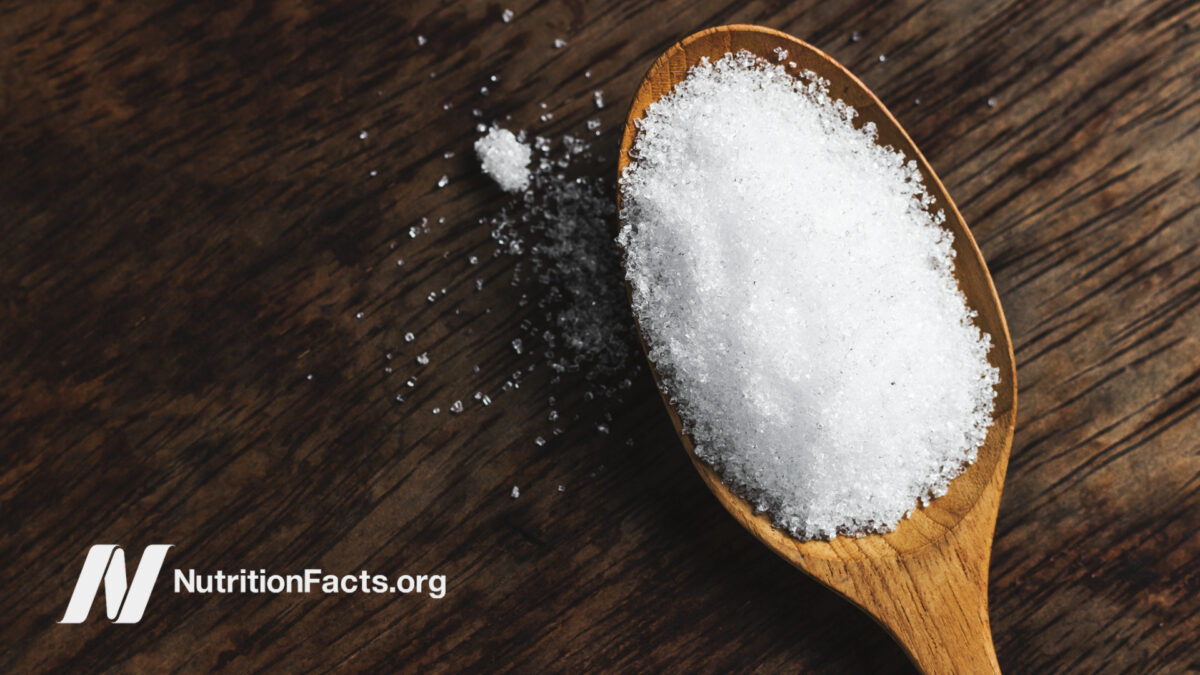
Does the Sweetener Allulose Have Side Effects?
How safe are fourth-generation sweeteners, such as the rare sugar allulose?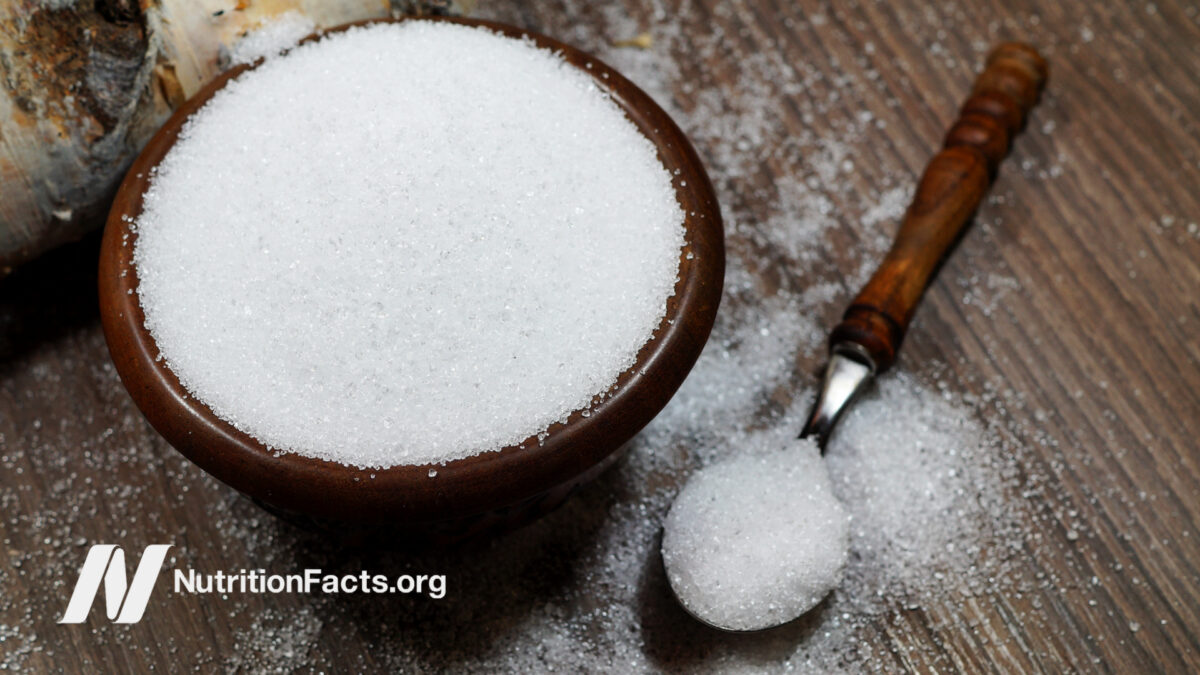
Is Allulose a Healthy Sweetener?
Are rare sugars like allulose a healthy alternative for traditional sweeteners?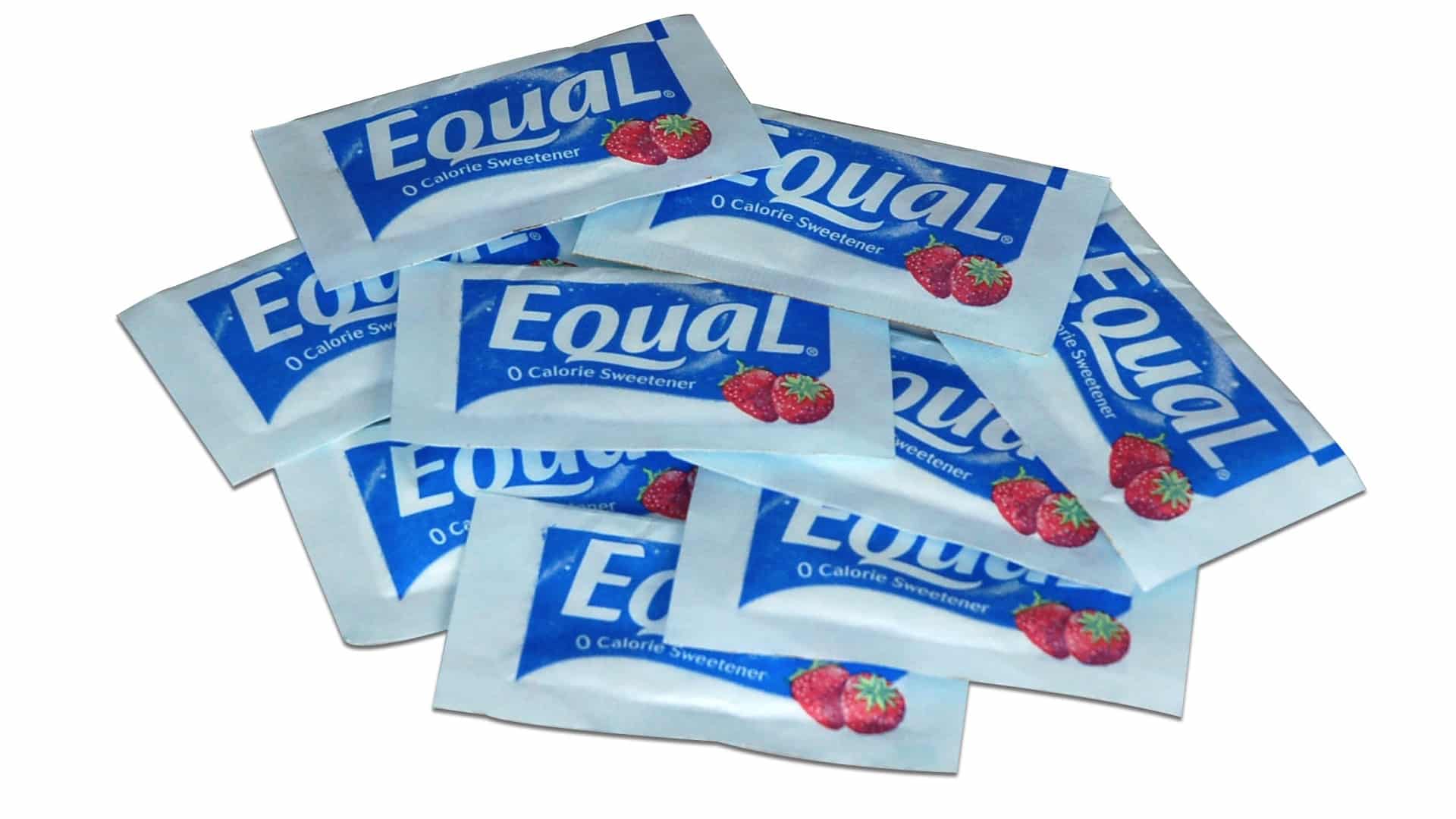
Aspartame and the Brain
The reason artificially sweetened beverages have been associated with depression may be because of psychological...
Erythritol May Be a Sweet Antioxidant – UPDATE: don’t eat! (See doc note below)
The natural sweetener erythritol does not appear to carry the adverse effects associated with other...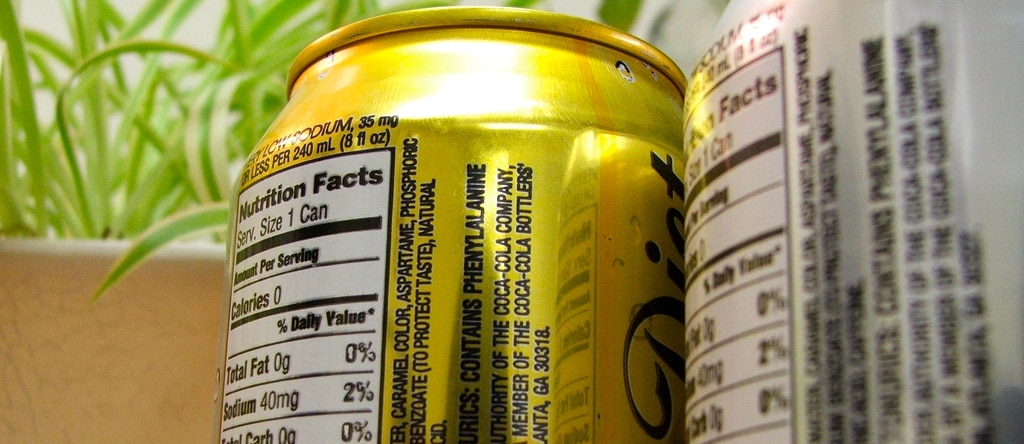
Aspartame-Induced Fibromyalgia
Case reports of fibromyalgia chronic pain sufferers cured, by removing the artificial sweetener aspartame (Nutrasweet®)...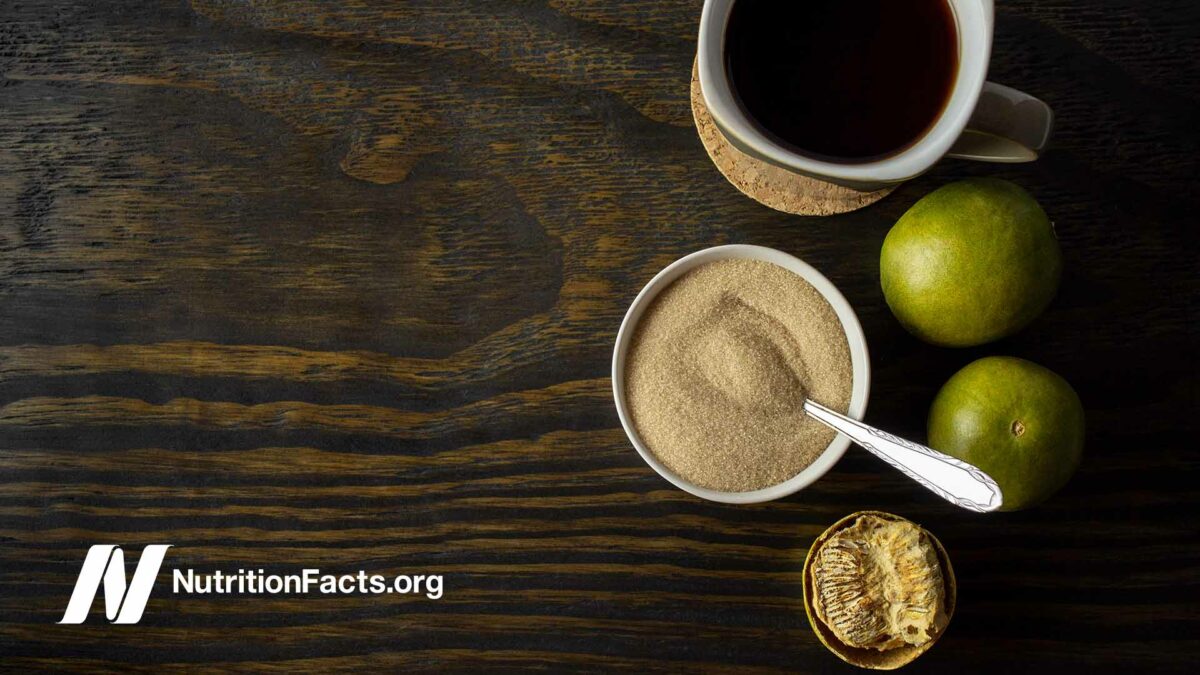
Is Monk Fruit Sweetener Safe?
The natural plant-based sweeteners stevia and monk fruit (Luo Han Guo) are pitted head-to-head against...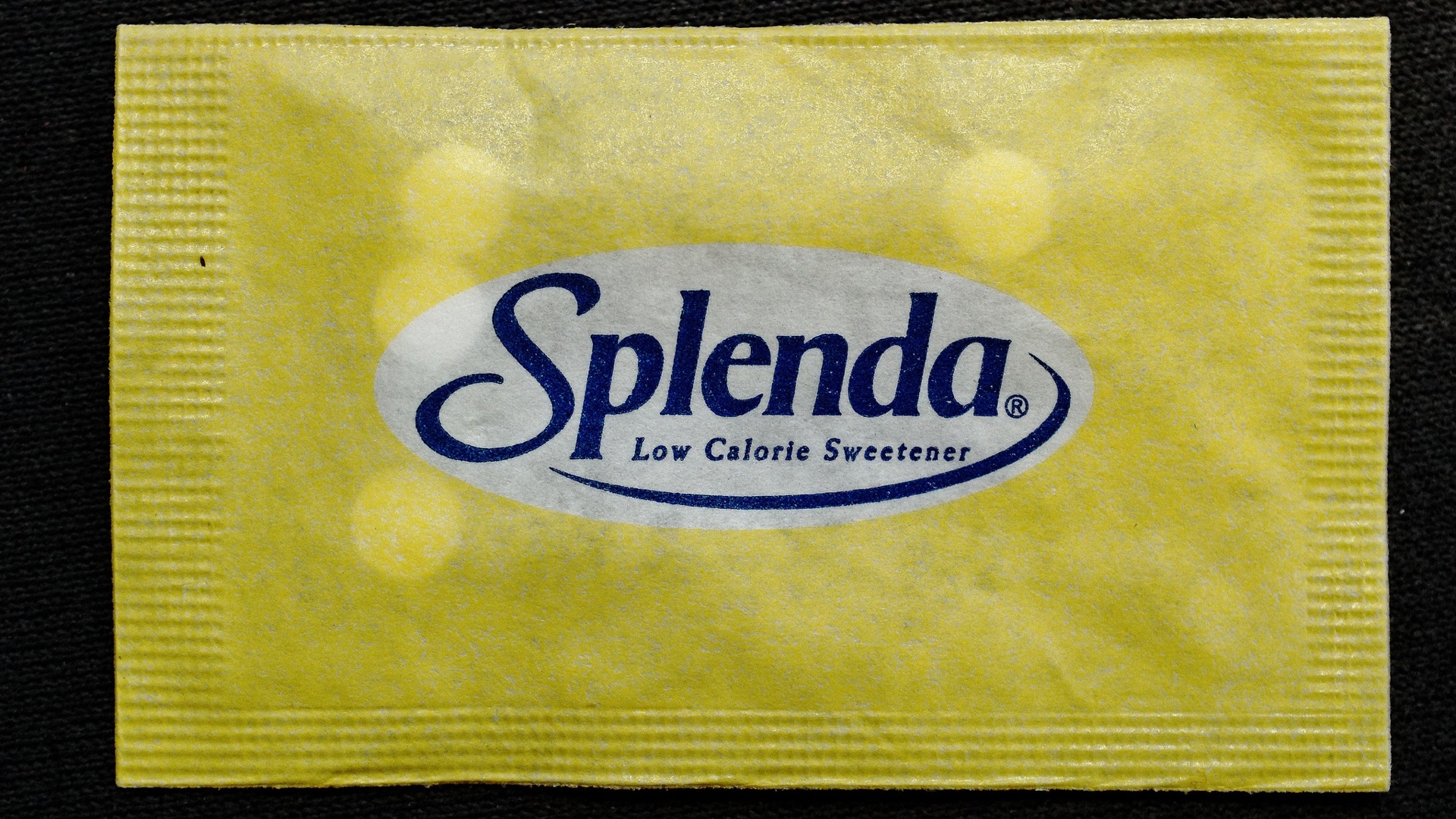
Effect of Sucralose (Splenda) on the Microbiome
What effect do artificial sweeteners such as sucralose (Splenda), saccharin (Sweet & Low), aspartame (Nutrasweet),...All Videos for Sweeteners
-

Update on Erythritol Sweetener Safety: Are There Side Effects?
Why are erythritol levels in the blood associated with higher levels of chronic disease?
-

How Much Erythritol Sweetener Is Too Much?
What are the maximum acute and daily doses for adults and children to avoid gastrointestinal effects?
-

Erythritol vs. Xylitol for Preventing Cavities (Tooth Decay) – UPDATE: don’t eat! (See doc note below)
Both erythritol and xylitol are not just neutral, but beneficial for dental health. Which one wins out?
-

Is Allulose a Healthy Sweetener?
Are rare sugars like allulose a healthy alternative for traditional sweeteners?
-

Does the Sweetener Allulose Have Side Effects?
How safe are fourth-generation sweeteners, such as the rare sugar allulose?
-

Does Chewing Gum Help with Weight Loss?
If extra chewing is effective in suppressing your appetite when it comes to food, what about chewing gum as a weight loss strategy?
-

How Many Calories Do You Burn Chewing Gum?
What are the effects of gum chewing on hunger and appetite?
-

Benefit of Dates for Colon Health
Seven dates a day for three weeks are put to the test in a randomized controlled trial.
-

Is Butter Really Back? What the Science Says
Is butter—and other saturated fats—bad for you or not?
-

Is Monk Fruit Sweetener Safe?
The natural plant-based sweeteners stevia and monk fruit (Luo Han Guo) are pitted head-to-head against aspartame and Splenda.
-

Dining by Traffic Light: Green Is for Go, Red Is for Stop
In this video, I explain my traffic light system for ranking the relative healthfulness of Green Light vs. Yellow Light vs. Red Light foods.
-

Arsenic in Rice Milk, Rice Krispies, & Brown Rice Syrup
I recommend people switch away from using rice milk.
-

Microbiome: We Are What They Eat
What happens to our gut flora when we switch from a more animal-based diet to a more plant-based diet?
-

Does Aspartame Cause Cancer?
How should we parse the conflicting human data on intake of aspartame (Nutrasweet) and non-Hodgkin’s lymphoma, multiple myeloma, leukemia, and pancreatic cancer?
-

Does Diet Soda Increase Stroke Risk as Much as Regular Soda?
Sugar is no longer considered just empty calories, but an independent risk factor for cardiovascular disease. So what happens if you switch to artificial sweeteners?
-

Effect of Sucralose (Splenda) on the Microbiome
What effect do artificial sweeteners such as sucralose (Splenda), saccharin (Sweet & Low), aspartame (Nutrasweet), and acesulfame K (Sweet One) have on our gut bacteria?
-

Aspartame and the Brain
The reason artificially sweetened beverages have been associated with depression may be because of psychological disturbances recently tied to aspartame (“Equal” or “NutraSweet”).
-

Coffee and Artery Function
The new dietary guidelines for beverages recommend tea and coffee second only to water in healthfulness, but what about concerns they might impair the function of our endothelium?
-

Are Fatty Foods Addictive?
Those eating calorie-dense diets may have a reduced capacity to enjoy all of life’s pleasures by deadening dopamine pathways in the brain.
-

Are Sugary Foods Addictive?
Evidence from PET scans suggests brain activity changes from the overconsumption of sugar may parallel that of drug addiction. Diminished “pleasure center” dopamine pathway sensitivity in obese individuals may be analogous to that found in cocaine addicts and alcoholics.
-

Apple Juice May Be Worse than Sugar Water
Why the spike in antioxidant levels in our bloodstream after drinking apple juice might not be a good thing.
-

Flesh and Fructose
Meat and sugar increase uric acid levels, which are associated with increased risk of gout, hypertension (high blood pressure), obesity, prediabetes, diabetes, kidney disease and cardiovascular disease.
-

Unsweetening the Diet
All sweeteners—natural and artificial; caloric and non-caloric—help maintain cravings for intensely sweet foods.
-

Neurobiology of Artificial Sweeteners
The disconnect between sweetness sensations coming from our tongue, and the lack of a caloric feedback loop in the gut, may result in overeating.
-

How Diet Soda Could Make Us Gain Weight
People consuming low-calorie sweeteners may overcompensate by eating more than they otherwise would.
-

Erythritol May Be a Sweet Antioxidant – UPDATE: don’t eat! (See doc note below)
The natural sweetener erythritol does not appear to carry the adverse effects associated with other non- and low-caloric natural and artificial sweeteners, and may actually have antioxidant potential.
-

Diet Soda and Preterm Birth
Aspartame may be the reason that diet soda consumption during pregnancy has been linked to premature birth.
-

Aspartame-Induced Fibromyalgia
Case reports of fibromyalgia chronic pain sufferers cured, by removing the artificial sweetener aspartame (Nutrasweet®) from their diets.
-

Calculate Your Healthy Eating Score
Rate your diet on a scale of 0 to 100 using the phytochemical index, and compare your score to the Standard American Diet.
-

Mercury in Corn Syrup?
Fifty different brands of high-fructose corn syrup-containing foods were tested for mercury.
